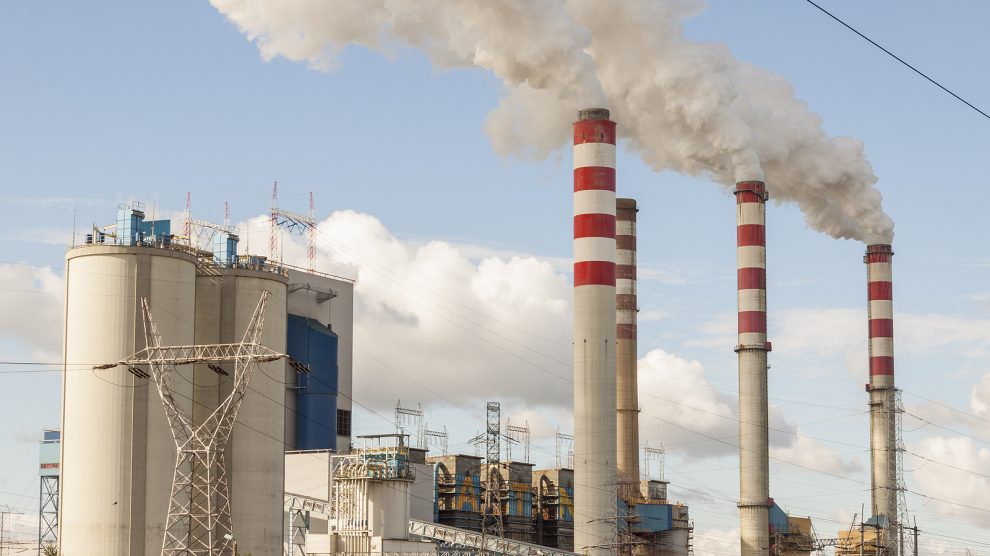Achieving the EU target of net zero emissions by 2050 will add a cumulative four per cent gain to Poland’s GDP and greatly reduce pollution-related deaths.
Accelerated action on decarbonisation could help Poland—the world’s ninth largest burner of coal—stimulate economic growth, enhance competitiveness and protect people from the harmful impacts of air pollution, a new report suggested this week.
Failure to do so, meanwhile, poses risks to both the country’s people and its economy, argues the World Bank Group’s Poland Country Climate and Development Report (CCDR).
- Falling demand slows Europe’s dash for LNG
- In the Western Balkans, government failures are increasing coal pollution
- Stara Zagora’s renewable energy potential
Indeed, Poland’s continued heavy reliance on coal for power (around 60 per cent of its electricity is generated by coal) and industrial production is already posing severe risks.
Poland has the highest number of deaths attributable to air pollution in Europe, at an estimated 40,000 premature deaths per year, and it is the only country on the continent where pollution-related deaths increased between 2015 and 2020.
Extreme droughts, meanwhile, are inflicting losses of about 1.4 billion US dollars per year, while 600,000 people and seven billion US dollars worth of assets are at risk from flooding every year.
In September, parts of Lower Silesia in Poland’s southwest received six months’ worth of rain in the space of a few days. The flooding claimed nine lives, made thousands of people homeless, and left some towns in ruins. The cost of reconstruction has been estimated at around 23 billion złoty (5.3 billion euros).
Poland’s coal exit date of 2049 has been described as “desperately late” by Beyond Fossil Fuels, a campaign group, and inconsistent with the Paris Climate Agreement, which calls on all EU countries to exit coal by 2030.
Successive Polish governments have resisted calls to bring the coal exit date forward for fear of angering mining communities. The current administration of prime minister Donald Tusk has repeatedly stated that an exisiting agreement with miners to burn coal until 2049 remains binding.
Economic boost
However, accelerating decarbonisation can deliver huge gains, the World Bank has now suggested. Achieving the EU target of net zero emissions by 2050 will add a cumulative four per cent gain in GDP. At the same time, the reduction in air pollution brought about by decarbonisation will lead to health gains equal to 1.4 per cent of GDP over the same period.
“Poland’s prospects of successfully navigating global decarbonisation trends are bright. The country’s strong manufacturing capabilities and relatively high manufacturing complexity position it well to attract a new wave of investment and expand into growing or new low-carbon lines of production,” said Ary Naïm, World Bank Group country manager for Poland.
“Accelerating Poland’s green transition and reaching Net Zero by 2050 will result not only in higher competitiveness and growth, but will also improve air quality for all citizens and boost the climate resilience of the economy.”
Furthermore, the World Bank says that achieving Poland’s development and climate goals is affordable and within reach, provided the right set of policies and investments are implemented in a timely manner.
Decarbonising the economy by 2050 will require investments of about 450 billion US dollars. Given that only less than half of the required investment needs can be filled by domestic and EU resources, mobilising private capital at scale will be key.
This will require deepening the capital markets to address the financing gap; fostering interest of institutional investors in environmental, social and governance issues; and using public-private partnerships to finance low-carbon infrastructure.
Energy system transformation
A comprehensive transformation of the energy system is crucial to achieving net zero emissions by 2050.
This will entail removing barriers to renewable energy expansion, strengthening Poland’s transmission and distribution grid, using natural gas as a transition technology, and scaling up electricity trade. The country currently has no nuclear power stations, although in September it announced plans to spend over 60 billion złoty (13.9 billion euros) between 2025 and 2030 on developing the country’s first nuclear power plant.
Decarbonising energy supply is also critical to cut the private sector’s carbon emissions to maintain competitiveness as global low-carbon efforts accelerate. On the demand side, energy efficiency measures and technology shifts can reduce energy demand by a quarter by 2050 compared to 2019.
Adaptation investments in key sectors, including in climate-resilient infrastructure, are needed to take full advantage of the economic benefits of decarbonisation. Production factors will be increasingly vulnerable to climate shocks, especially in unfavorable weather scenarios.
Under a pessimistic warming scenario, GDP losses from climate shocks could reach almost 1.2 per cent of GDP in 2050 if no adaptation measures are taken. Resilience investments can however offset these losses almost fully by 2050, with benefits largely outweighing their costs.
Although decarbonisation is expected to create about 300,000 jobs in green sectors, including renewables, grid infrastructure, and digitalisation, the impacts will vary across sectors, regions, and workers.
In just transition regions, both mine workers and employees of the mine-related sectors, as well as their families, will require adequate social protection and labor market policies to ensure a just transition.
Targeted support programmes will be needed to make sure that low-income and energy poor households are not disproportionately affected by full decarbonisation.
At Emerging Europe, we use an integrated approach centred around market intelligence to help organisations understand trends and strategically position themselves for success.
Learn how our solutions can help you thrive in the region:
Company and Services Overview | Strategic Advantage.

